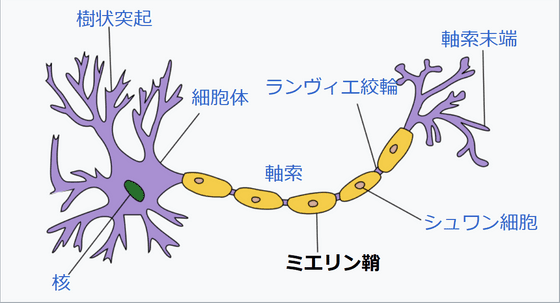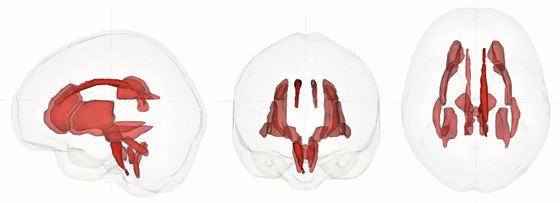Study finds that running a marathon makes your brain eat itself

A paper has been published that shows that when the brain becomes starved after a grueling marathon, it tries to consume its own fat tissue to get energy. The discovery of this reversible phenomenon, which returns to normal within two months, suggests that the protective tissue of nerve cells, called
Reversible reduction in brain myelin content upon marathon running | Nature Metabolism
https://www.nature.com/articles/s42255-025-01244-7
Your Brain Might Start 'Eating Itself' During Strenuous Endurance Exercise : ScienceAlert
https://www.sciencealert.com/your-brain-might-start-eating-itself-during-strenuous-endurance-exercise
Myelin is a lipid-rich tissue that wraps around the axons of nerve cells and serves primarily as an insulator for neurons.

Spanish researchers hypothesized that brain cells may use lipids in myelin for energy, just as muscles burn body fat for energy. They conducted an experiment in which they scanned the brains of 10 veteran runners who had completed a distance of about 26 miles.
The research team used MRI to image the brains of the runners before and after running the marathon, and examined the 'myelin content' -- an index of the amount of water contained in myelin -- and found that the amount of myelin in
A 3D image of an area of white matter with significant myelin loss looks like this:

The team reported that significant myelin loss occurred in brain regions involved in motor function, coordination, and sensory and emotional integration, and that ongoing scans of a subset of participants showed that myelin had significantly recovered two weeks after the marathon, and had returned to pre-marathon levels by two months.
Below are scans comparing the water content in myelin (MWF) from before the marathon, two days after, two weeks after, and two months after the marathon. The brighter the areas, the more MWF there is.

The graph below compares MWF before (green), after (red), and two months after (blue). All 12 white matter regions showed a loss of myelin after the marathon, and then almost completely recovered by two months later.

Until now, some neurologists have believed that the brain rarely burns fat for energy even when it is malnourished, but this study shows that myelin not only protects neurons but also acts as an energy store. The research team calls this hypothesis 'metabolic myelin plasticity.'
'Other studies in mice have suggested that when the brain is starved of glucose, myelin is used as a fat storage facility,' the team said. Another study showed that runners who completed a marathon had slower reaction times and performed worse on memory tests, but their brain function recovered rapidly afterwards.
'Further research is needed as these findings may be relevant to brain energy metabolism,' the research team wrote in their paper, noting the need to better understand the risks of strenuous exercise in people at risk of neurodegenerative diseases.
Related Posts:
in Science, Posted by log1l_ks







